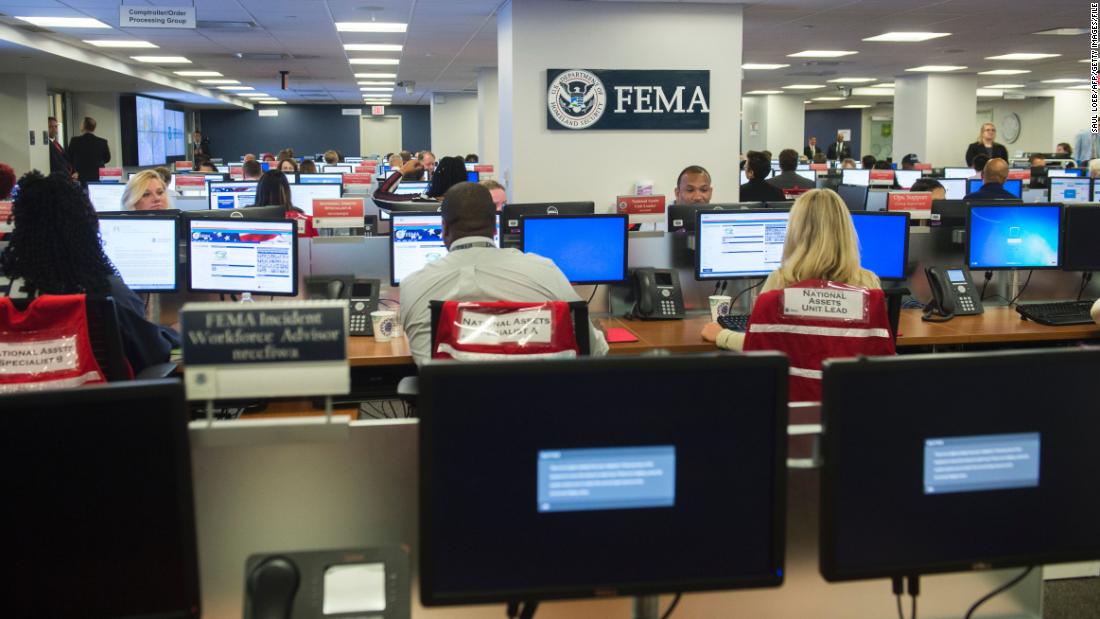
According to the new interim policy, set to begin September 15, the federal agency is changing what it considers eligible as an emergency protective measure in emergency and disaster declarations for its pandemic response.
For example, according to a FEMA spokesperson, the agency will not consider disinfecting supplies for the normal operation of schools and other public facilities an emergency protective measure and, therefore, will not provide reimbursement to states under the updated policy. The policy also indicates personal protective equipment, like masks, for non-emergency settings would not be eligible for reimbursement.
"They've really chosen to pull out some of the tools that we ordinarily would have as emergency protective measures in our toolbox," Andrew Phelps, Oregon's emergency management director, told CNN.
"It's a really uncomfortable position for states to be in to have to weigh 'Gosh, you know, with our budgets, where do we spend the finite amount of state dollars that we have?'"
FEMA will still reimburse states for the "purchase and distribution of personal protective equipment that is directly related to the performance of otherwise eligible emergency work or is provided to healthcare workers, patients with confirmed or suspected Covid-19 infection and first responders."
FEMA officials addressed the interim policy with states on a briefing call Tuesday. According to a source on the call, the guidance from the briefing helped provide clarity, but left many states frustrated over the level of support they can expect from FEMA's public assistance program, which provides the states with reimbursement, to protect their communities.
"We have used this program for making mass purchases of personal protective equipment to slow the spread of coronavirus. Such purchases are, obviously, an emergency protective measure during a pandemic. This event is logistically complex by its nature and fema should stand by their original guidance," North Carolina Emergency Management Executive Director Mike Sprayberry told CNN.
In a document provided to states by FEMA outlining policy guidance, the agency highlights funding from other federal agencies, pointing out, "to date, Congress has authorized over $3 trillion to multiple federal agencies to address the effects of the Covid-19 pandemic."
In an email to CNN, a FEMA spokesperson said states, territories and tribes can find funding through other sources including the coronavirus relief fund and funding appropriated for schools administered by the US Department of Education.
According to the Department of Health and Human Services, the agency plans to provide 125 million cloth masks to states for distribution to schools.
With more than 6 million coronavirus cases and at least 185,000 deaths now reported in the United States, according to numbers from Johns Hopkins University Center for Systems Science and Engineering, state emergency managers are trying to stay ahead of the pandemic and avoid the type of PPE shortage the country saw in March. Phelps believes the new policy is not in line with FEMA's mission to help people before, during and after disasters.
"Everyone who, who doesn't have what they need to go back to school, or to go back to work, or to go to the grocery store, is putting themselves, I think, at a greater risk to contract Covid or to spread Covid around the community," Phelps said. "We also know that Covid disproportionately impacts minorities here in Oregon. And when you've got folks that are already disproportionately impacted by things like unemployment, and now by Covid, it really becomes an issue of additional lives lost."
"help" - Google News
September 03, 2020 at 01:02AM
https://ift.tt/2ERHR5R
New FEMA policy to limit what it will help states pay for in non-emergent settings, including masks - CNN
"help" - Google News
https://ift.tt/2SmRddm
Bagikan Berita Ini














0 Response to "New FEMA policy to limit what it will help states pay for in non-emergent settings, including masks - CNN"
Post a Comment